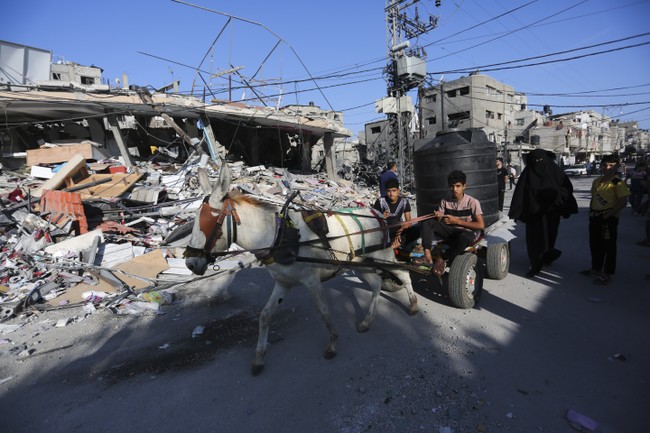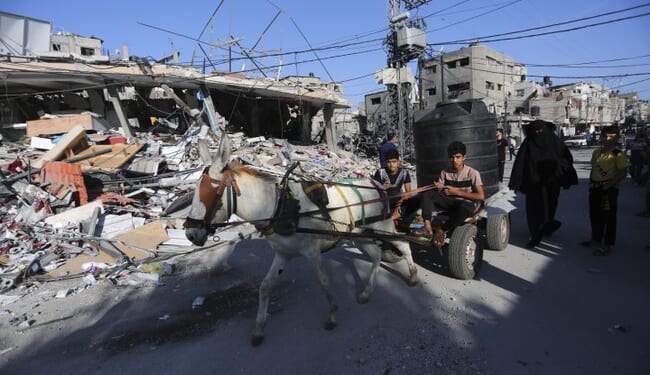
For the first time since the October 7 attack by Hamas on Israel, the U.S. is refusing to ship a cache of arms to the Jewish state.
It’s unclear why the administration halted the shipment that Axios says is a shipment of ammunition. But it could be a response to Israeli Prime Minister Benjamin Netanyahu’s rhetoric on the Israeli defense forces entering the city of Rafah even if Hamas accepts a cease-fire deal.
Biden has been insisting that Netanyahu develop a plan to evacuate civilians from Rafah before any invasion. But the Israelis are only giving the barest of outlines of a plan and the Biden administration remains unsatisfied.
Indeed, the logistics of moving 1.7 million civilians out of a city and transporting them to al-Mawasi, a small strip of land on the southern Gaza coast about 30 miles away, is daunting. Most of the humanitarian assistance for Gaza has been flowing through Rafah, meaning that the aid has to be moved as well.
Now Hamas is signaling that it may accept a deal to release the hostages if the U.S. guarantees a “cessation of hostilities.” But Israeli negotiators are saying that Netanyahu will not agree to a truce deal that would end the war and had not empowered Israeli negotiators to make that deal.
Hamas said that it would not agree to any deal that didn’t explicitly include an end to the war. This would seem to indicate that the two sides are no closer to a deal now than they were when talks first began.
Israeli Prime Minister Benjamin Netanyahu released several statements in recents days saying he intended to order an invasion of Rafah regardless of whether Israel and Hamas reach a deal for the release of hostages being held in Gaza and a ceasefire.
Netanyahu hinted at tensions with the Biden administration in a statement on Holocaust Remembrance Day issued Sunday.
“In the terrible Holocaust, there were great world leaders who stood by idly; therefore, the first lesson of the Holocaust is: If we do not defend ourselves, nobody will defend us. And if we need to stand alone, we will stand alone,” he said.
It’s unclear what the Biden administration would do if Israel went ahead with an invasion of Rafah without a “comprehensive” plan for civilian evacuations. It’s likely that Biden would harshly condemn such an attack and threaten to cut off all military aid.
That’s why there’s the possibility that rather than poison the well entirely with his U.S. ally, Netanyahu could agree to some kind of extended truce in exchange for the hostages.
The truce deal coming together is believed to be composed of several potential phases, with the first phase seeing a limited release of “humanitarian” hostages for a truce of several weeks, while further phases featuring further releases and a more solid ceasefire are possible.
Citing unidentified sources, the Palestinian Al-Quds newspaper said American mediators had promised that Israel would completely withdraw from Gaza under the third and final phase, and the war would effectively end.
An unnamed Hamas source gave a similar statement to Israel’s Channel 12 news.
Hamas, Al-Quds reported, was for the first time poised to agree to launch the first phase without a guarantee of the war’s end, based on those assurances and its belief that it still holds significant cards in the form of hostages who will not be released under the first phase.
Any deal does not appear imminent and there are so many moving parts to an agreement that even if there’s agreement, the chance of the whole thing falling apart is there.












